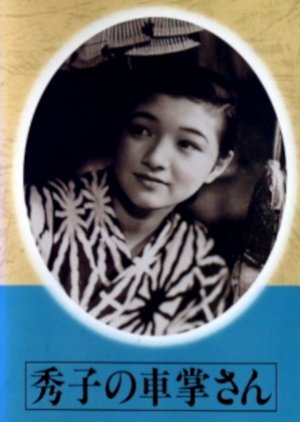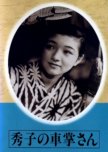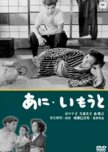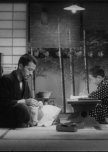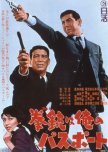Okoma, a witty young woman working as a conductor in an old, rickety bus in Kofu, Yamanashi, has a creative idea that could avert the dwindling number of passengers when her job and the bus company itself are at stake. (Source: Letterboxd) Edit Translation
- English
- हिन्दी
- Español
- Português (Brasil)
- Native Title: 秀子の車掌さん
- Also Known As: Hideko no Shasho-san , Hideko no Shashosan , Hideko no Shashou-san , Hideko no Shashousan , Hideko the Bus Conductress , Hideko the Bus-Conductor , The Conductress
- Screenwriter & Director: Naruse Mikio
- Genres: Life, Drama
Cast & Credits
- Takamine HidekoOkoma [the bus conductor]Main Role
- Fujiwara KamatariSonoda [the bus driver]Main Role
- Kiyokawa Tamae[Landlady]Support Role
- Katsumi Yotaro[Bus company president]Support Role
- Mano Tsuruko[Okoma's mother ]Bit part
Reviews

Okoma is the young conductress on an old, dirty bus. The driver and her friendly colleague is Sonoda. The two love their jobs even as the company they work for is being edged out by a new company that has cleaner, more modern, and faster buses. Their passengers tend to be poor or in need of a largely empty bus. Passengers bring baggage, children, even chickens with them. Okoma comes up with the idea of acting as a tour guide along with her other duties to liven up the ride and draw in more customers. The two bus workers ask a visiting writer that Okoma had helped out to write them a script. Ikawa is more than happy to pay back the favor he owes Okoma and sets to work writing the script and teaching her how to speak like a tour guide.
Takamine Hideko was delightful as the good-hearted conductor. In one scene they stop the bus so she can deliver a gift to her mother who scolds her for spending money. She had no problem sharing her meager earnings on something for her mother yet at this stop she had to trade out her badly worn cloth shoes for her traditional geta. Fujiwara Kamatari played the congenial but slow driver willing to go along with Okoma’s ideas. He took her ideas to the boss as it was unacceptable for Okoma to present them to the toe digging, lemonade drinking, back stabbing leader. Natsukawa Daijiro as Ikawa supplied the two bus workers with creative and legal advice. More educated and cosmopolitan, Ikawa came to their aid when the bus company boss crossed an ethical line and pressured the two to do the same. The trio of comrades were affable and easy to root for.
Naruse made use of the rural scenery as a silent fourth character. Most of the roads appeared to be dirt with the bus kicking up a trail of dust behind it. The opening sequence and jaunty music reminded me of Mr. Thank You (1936), another film dedicated to a bucolic bus route and happy driver. The copy I watched was sadly in need of restoration, like peering through murky water that caused the faces to be badly obscured. I would love to have seen the countryside more clearly as well.
Hideko the Conductor wasn’t deeply profound, nothing exciting happened, yet Naruse once again showed us regular people choosing to make the best of difficult situations. He also provided gentle laughter, friendship, and a twinge of pain on the scenic ride.
5 June 2025
Was this review helpful to you?
Recommendations
There have been no recommendations submitted. Be the first and add one.

